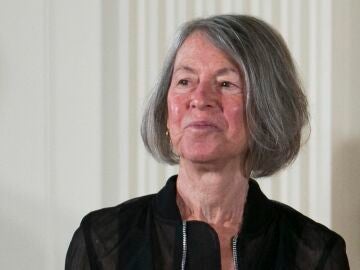
The American poet Louise Glück (New York, 1943), with a career spanning half a century in which she won the Nobel Prize for Literature in 2020, died this Friday at the age of 80.
Glück’s works, contained in twelve collections of poetry and some volumes of essays on poetry, are characterized by a striving for clarity, and this was highlighted by the Swedish Academy when he was awarded the Nobel Prize.
The death of Glück, who wrote on various topics such as childhood, family, loneliness and death, inspired by ancient mythology and his own life, was published by his publisher, Farrar, Straus & Giroux, Jonathan Galassi, but no further details have been provided, according to various media outlets.
Hailed as one of the living writers most important in the United States, he also won the Pulitzer Prize and the National Book Award, highlights The New York Times. She also said that she was considered one of the country’s most important living poets, long before she won the Nobel Prize.
He began writing in the 1960s but consolidated his reputation in the eighties and the early 1990s with a series of books, including “The Triumph of Achilles” (1985), which earned him the National Book Critics Circle Award; “Ararat” (1990), which was based on the pain he experienced over the death of his father; and “The Wild Iris” (1992), for which she won the Pulitzer.
While in his early works, especially his debut in literature with “Firstborn” (1968), are deeply indebted to the so-called confessional poets who dominated the scene in the 1950s and 1960s, such as John Berryman, Robert Lowell and Sylvia Plath, The New York Times also highlights.
When Glück, who lived in Massachusetts and taught English at Yale University, she was the first American poet to win it since TS Eliot in 1948. At that time, the Academy indicated that she had an “unmistakable poetic voice that through austere beauty makes universal the individual existence.”
Source: Lasexta
Bruce is a talented author and journalist with a passion for entertainment . He currently works as a writer at the 247 News Agency, where he has established himself as a respected voice in the industry.












